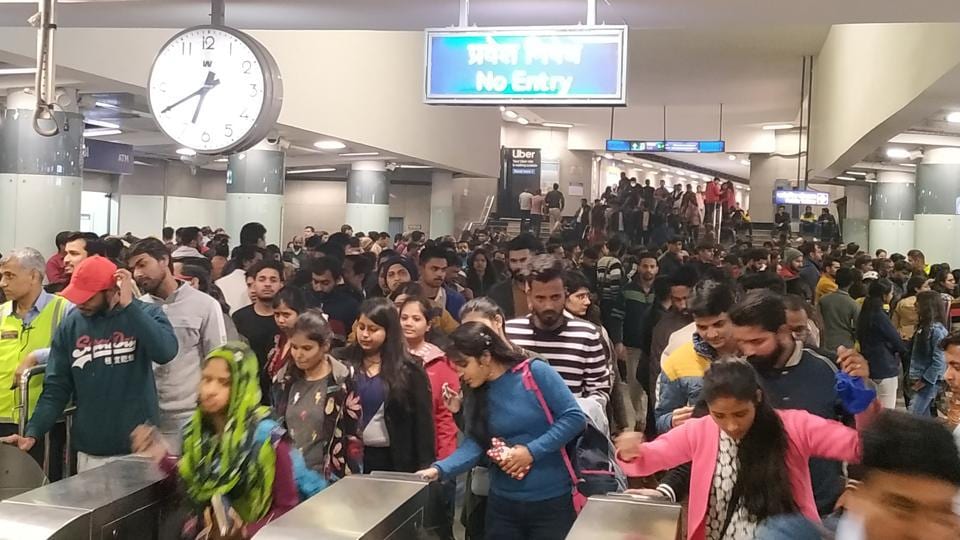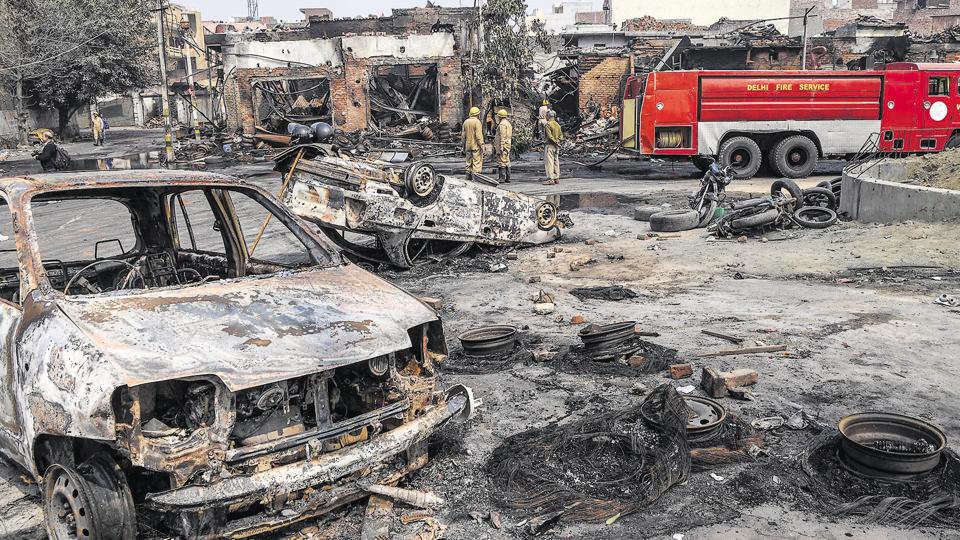prasad1
Active member
Delhi metro staff and security personnel at one of the busiest stations – Rajiv Chowk – Saturday morning handed over a group of six men to the Delhi Metro Rail Police after they raised incendiary slogans “desh ke gaddaron ko, goli maaro sa***n ko” or “shoot the traitors who betray the country”.
A video clip of the sloganeering was also widely shared.
“In reference to a video clip going viral on social media, showing sloganeering by some passengers at Rajiv Chowk Metro station, it is to state that this incident happened today around 10:52am at the station and DMRC/CISF staff immediately handed them over to the Delhi Metro Rail Police for further necessary action.
“Under Delhi Metro O&M Act 2002, any kind of demonstration or nuisance is prohibited in Delhi metro premises. Any passenger indulging in such act is liable to be removed from the Metro premises,” the DMRC said in a statement.
Police said the six men have been detained and are being interrogated.

 www.hindustantimes.com
www.hindustantimes.com
A video clip of the sloganeering was also widely shared.
“In reference to a video clip going viral on social media, showing sloganeering by some passengers at Rajiv Chowk Metro station, it is to state that this incident happened today around 10:52am at the station and DMRC/CISF staff immediately handed them over to the Delhi Metro Rail Police for further necessary action.
“Under Delhi Metro O&M Act 2002, any kind of demonstration or nuisance is prohibited in Delhi metro premises. Any passenger indulging in such act is liable to be removed from the Metro premises,” the DMRC said in a statement.
Police said the six men have been detained and are being interrogated.

6 held for ‘Goli Maaro’ slogans in one of Delhi’s busiest metro stations
Police said the six men have been detained and are being interrogated.

